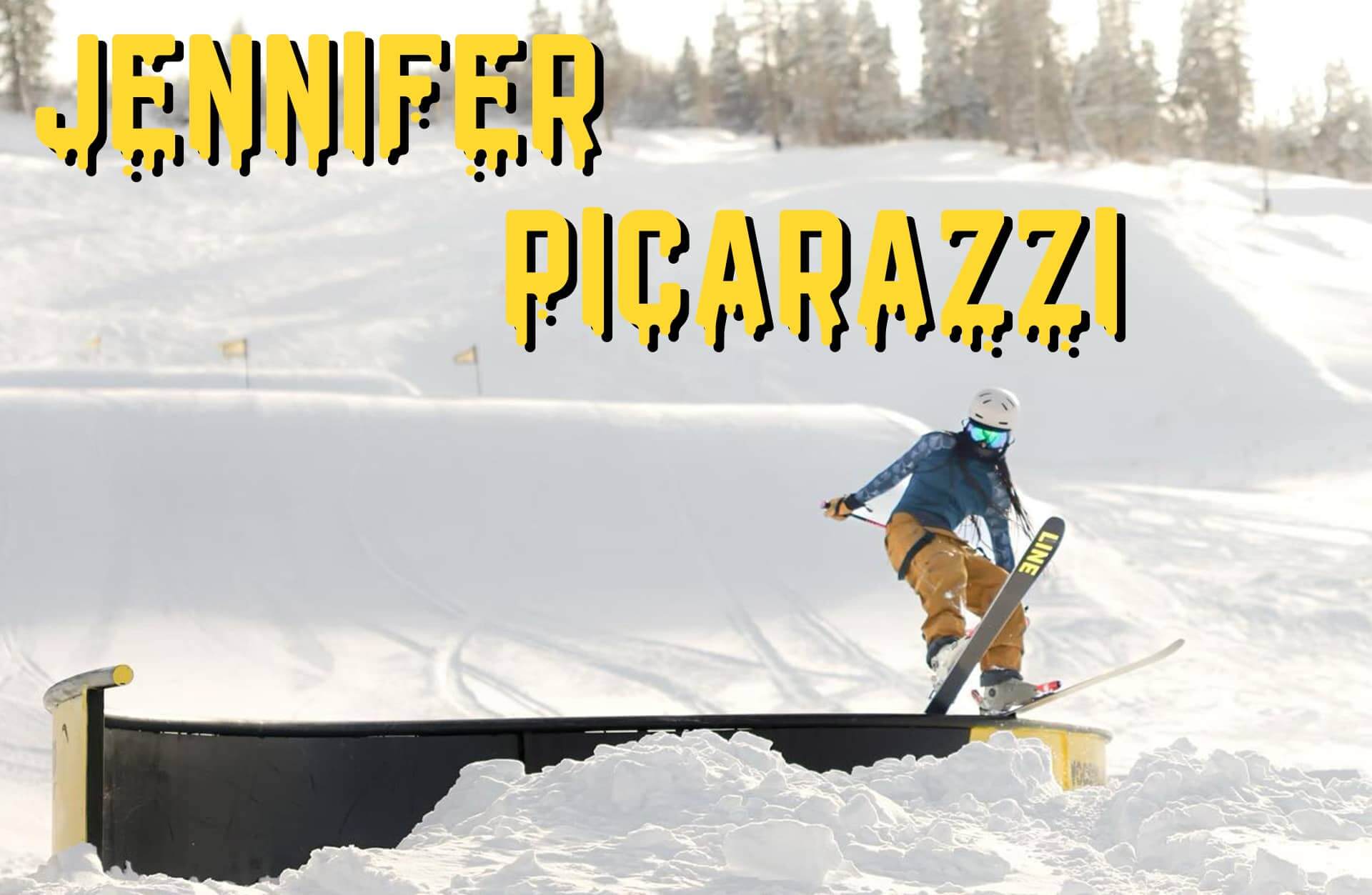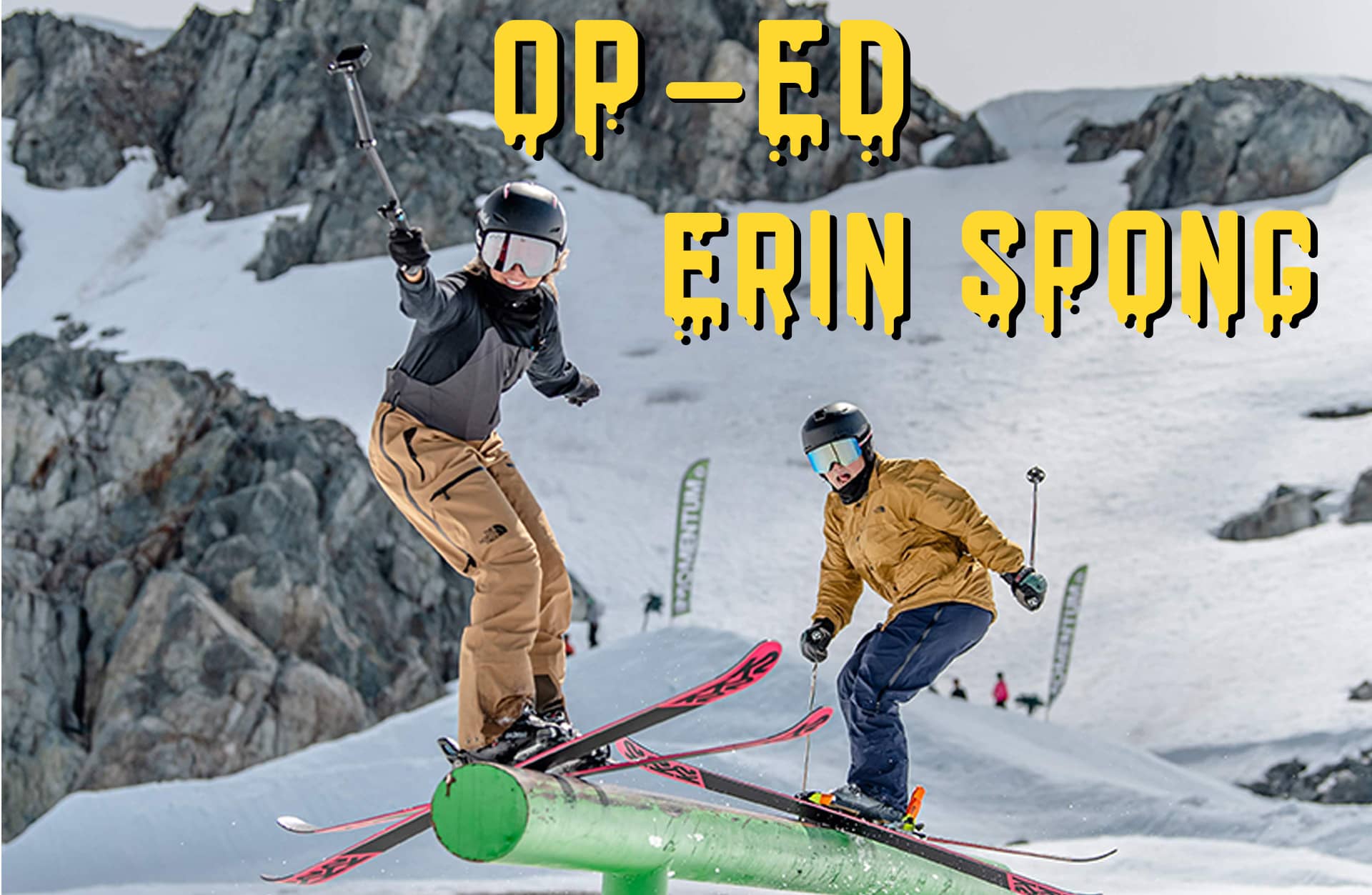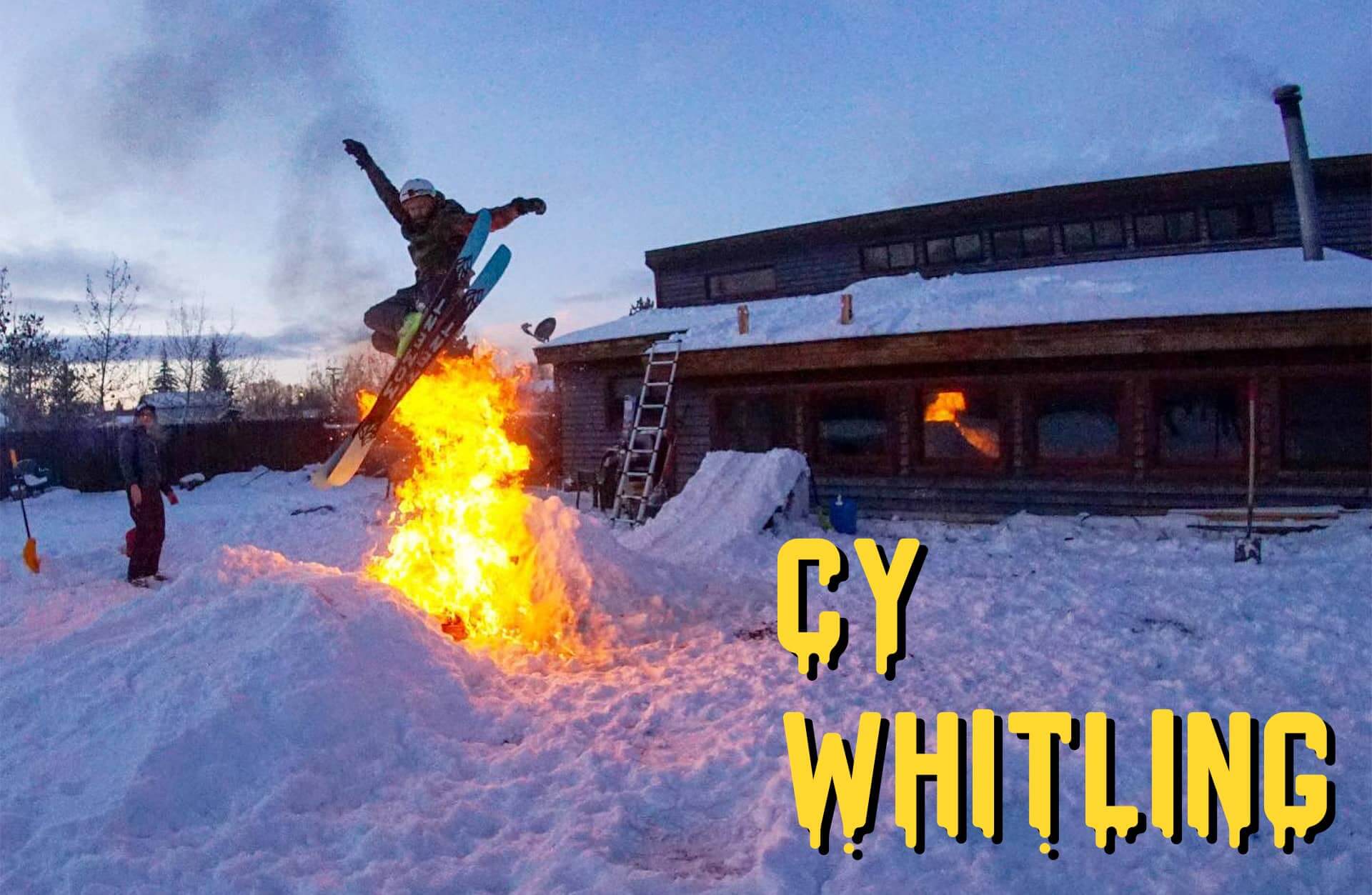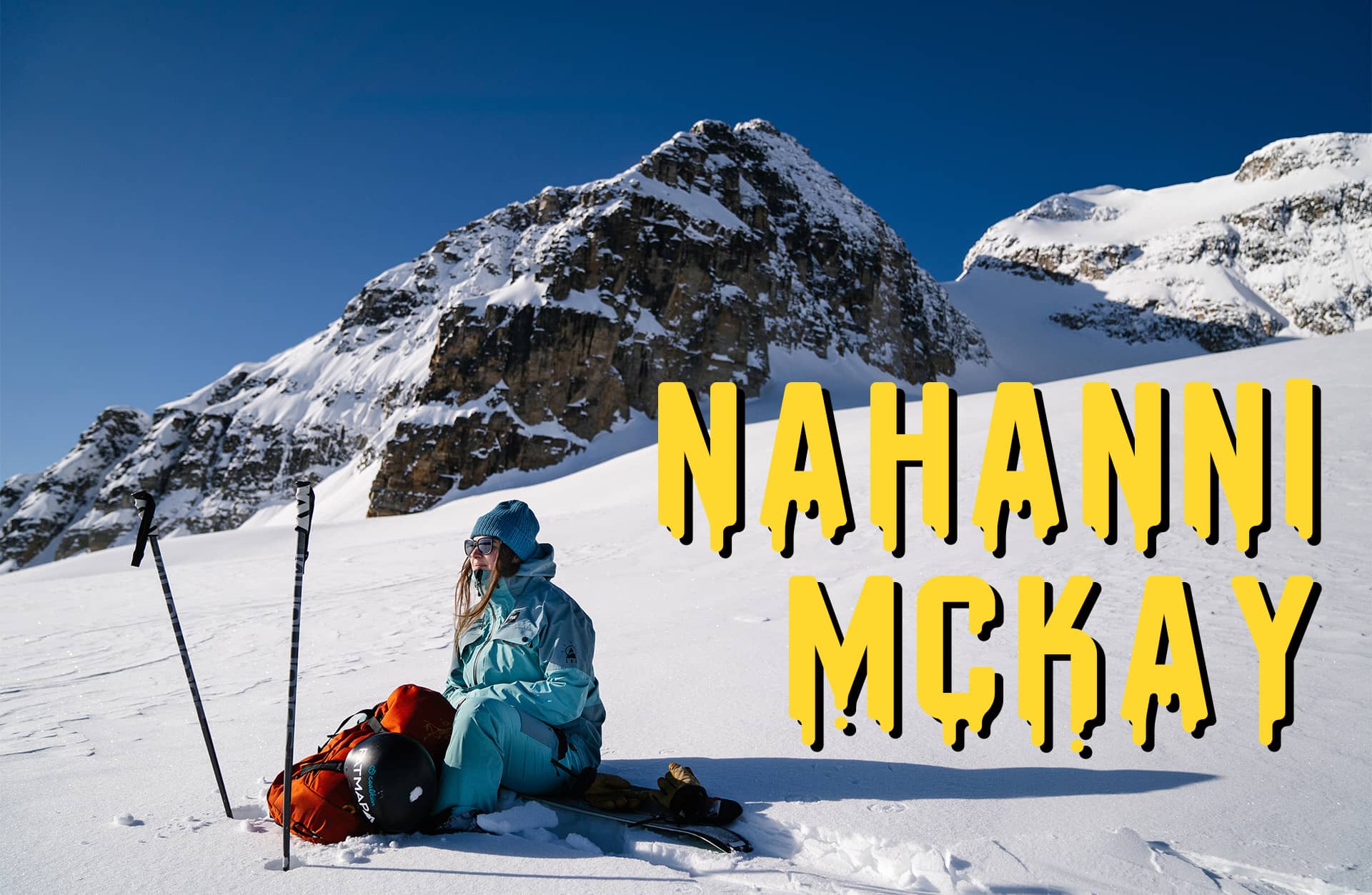SNOW // 01 MAR 2023
THE FEMME SIDE OF SKIING
Born in the Indochinese Peninsula of Southeast Asia, skier and influencer Jennifer Picarazzi’s adoption process had a few unexpected twists. “My adoption story is something I’m super proud of and it’s kind of a wild story. I love telling it to people,” smiled Picarazzi. “I’m originally from Cambodia, my heritage is full Khmer. My parents adopted me right after 9/11, so they had this huge struggle trying to get me back into the country because of border issues. Both my parents came down, and my mom ended up getting a place there to live with me while she was fighting this legal battle to get us back into the US. We almost had to move to Australia for a little bit because it was nearing the time that their visa would end, but they were able to get me back [before then].”
The topic of Picarazzi’s adoption was never off the table in her household growing up. Every question that could be answered was, and Picarazzi’s heritage was always celebrated. “They had a picture of my mom and I together. They put it up in my room,” she smiled. “My mom put Buddhas all over the house since Buddhas are very symbolic of Cambodia. We went back when I was either 14 or 16. We visited Cambodia and my nanny and everywhere that would be meaningful. And then, obviously, some cool tourist places. [My adoption is] something I’m very grateful for, honestly, because the [other option] would have most likely been me living in poverty. So, yeah, I’m very grateful for it.”
Growing up in Bend, Oregon, Picarazzi’s childhood home was nestled next to Mount Bachelor, one of the largest ski resorts in America. Though the town is known for its year-round outdoor adventures, the community is defined by its love for skiing and snowboarding. Picarazzi grew up immersed in that passion, both in the community and at home. “For my dad’s whole life, way before I was born, he’d gone on ski trips every year with his friends,” said Picarazzi. “I was like, that’s cool, I want to try that.”
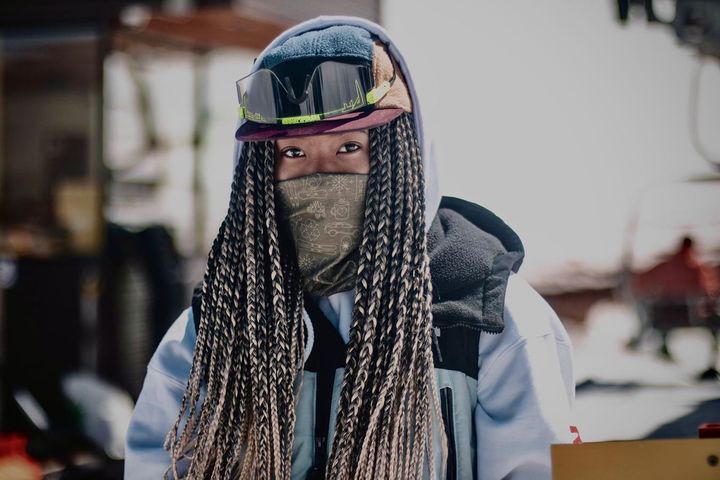
Strapped into skis as soon as she could walk, Picarazzi was in ski school by the time she was two. Whether on the mountain skiing or at the rink figure skating, Picarazzi’s winters were spent on the move. Then, when she entered middle school a new sport caught her eye. “I hit the age where I was thinking more independently from my parents,” said Picarazzi. “And I was like, oh, skiing is not cool, snowboarding is the thing to do, fuck skiing. So I switched over to snowboarding.”
Snowboarding through most of high school, Picarazzi enjoyed the sport, but never seemed to be able to reach the level of proficiency she wanted. After receiving a new pair of skis for her seventeenth birthday, Picarazzi decided to give the sport another chance. “I literally took six laps and was like, sick! I’m going to stick with this,” she laughed.
In that first season back on skis, Picarazzi quickly found her groove and was happily lapping Mt. Bachelor, but one part of the resort always seemed to draw her in, the park. “We’d go to the summit, we’d hike around, ride the rest of the mountain, find fun drops. All of that was awesome, but I just found myself being like, let’s go hit the park before we have to leave.”
When spring rolled around and the snow began to melt, Picarazzi still wanted to be on her skis. So she returned to the one part of the resort that was still open. “They still had the park up. I wanted to be able to do something on days where it’s bad weather, on days where there’s not great snow or not enough snow. I wanted to be able to learn something and do something new and continue to progress on crappy condition days. And so boom! Park skiing,” she explained. “Then eventually I [decided] I want to actually be able to do this well. So I was like, let’s figure out a coach.”
Picarazzi convinced her mom to put her on the Mount Bachelor Sports Education Foundation freeride ski team. “My mom and I made this little deal that she’d let me do the ski team if I got good grades and passed my drug tests,” laughed Picarazzi. It was a good deal, and by the end of her first year on the team, Picarazzi won second at nationals.
“[There] was this massive downflat, downflat, down at nationals,” said Picarazzi recalling one of the rails in the competition course. “I hadn’t even practiced rails with a kink before. I had done flat rails. I had done boxes. I had done tubes. I had done handrails. I had done flat downs on a tube that were near the ground. But, I was at nationals, the stoke was high, the ability was high. The friends were awesome. And I was like, you know what? Let’s try it. Let’s fucking do it! And I did it! I greased the whole thing on my second try. That felt so good.”
However, falling in love with skiing and the ski community as a BIPOC woman was not without its challenges. Going to a private school in a predominantly white town meant that Picarazzi was one of about six BIPOC girls in her school, but even in the minority, she was never afraid to stand up when something felt off. “It’s really weird because, the subtle racism, you kind of punch yourself for thinking that it’s racism,” explained Picarazzi. “There were just a couple of instances where something would be said and I’d speak up and be like, hey, that was a little racist. I’m not mad. Just a little racist. Let’s talk about it. But, I would always be the one who was on the wrong side of that argument.”
Her experience in the ski community was similar. As she explained, “People were like, you’re here, you’re skiing, you’re mountain biking, you work. What do you mean you’re not being included? There’s obviously no racism because you can do all the basic human things. So, anytime I’d try and speak up for myself on behalf of the color of my skin, it would just be like, dude, you’re delusional, because you hang out with us. What do you mean? No one here is racist.” Though those around her may have been well intentioned and supportive of her participation in the sport, microaggressions, purposeful or not, still happened, and Picarazzi was left to deal with the consequences.
This issue compounded with Picarazzi’s struggles as a BIPOC woman in a predominantly male space. While she enjoyed hitting rails with her friends, Picarazzi couldn’t help but feel that she had to neglect the feminine things she enjoyed in order to fit in. “I put myself in this little bubble of people where I loved everything that we did. It was super fun,” explained Picarazzi. “But the day I walked in with hair extensions, they’re like, what is wrong with you?” Without a role model to look up to in the snow sports community, it was difficult for Picarazzi to imagine a way to join these two parts of her personality together. “When I was looking at my idols, there was no one that looked like me. I feel like what was lacking for me growing up was seeing a woman of color who was comfortable in her own femininity.”
Still, Picarazzi’s love of skiing triumphed and upon graduating high school she moved to Bozeman, Montana, attending school and joining the ski team. Unfortunately, COVID struck a little over a year into Picarazzi’s college experience. Along with the overpriced online classes, the competitive ski environment began to eat away at Picarazzi and her passion for skiing. Unsure of her next steps, she moved down to Salt Lake City to regain her footing.
She elaborated, “I love the idea of getting a coach, getting better, having a community, but that didn’t really click with me. I personally didn’t have any comp friends that I enjoyed being around. I know there’s tons of people out there where their community is their team that they travel around with. For me, I just felt like it ended up being a very pressured environment that was making me not like skiing anymore and was making me feel down about my skills.”
For a moment, Picarazzi wasn’t even sure if she wanted to keep skiing. Thankfully after a season of working as a liftie at Woodward Park City, that spark reignited. “I still love going to competitions,” she explained. “I’ll still sign up for little local rail jams or just do little local things with my friends every once in a while. I do like the aspect of competing. I just didn’t like the environment I had been put in by myself and others.”
Interested in pursuing a career that involved skiing, but from a different angle, Picarazzi dipped her toes into the corporate side of the ski industry. Working on the marketing team at Pit Viper, Picarazzi learned how athletes could better promote themselves, herself included. “It was really interesting being on the marketing side,” she said. “It gave me a different perspective on how brands run with their athletes, and it gave me insight on how to be an athlete for these other brands because I knew what Pit Viper was keeping their eye on. [For example] a video technique they wanted me to use, I would apply that to my personal videos to see if it did anything.”
As she began to post more on TikTok and Instagram, Picarazzi realized there was a space where she could love skiing, love herself, and share that joy with everyone else. Soon she was connecting with other members of the skiing TikTok community, including A.J. Cutler and Sammy Olsen. Those friendships then coalesced into The Gnardashians, an all femme ski movie that promises to be a rowdy good time.
Transitioning more into an influencer role, Picarazzi found what seemed to be lacking for her in the competition side of skiing. “The influencer side has really allowed me to post the things that I want and be myself more than [I could in] the comp world,” she explained. “Because in the comp world, you’re posting your best tricks and trying to look your best for huge brands. Which is my end goal, but I want it to be more mellow than that.”
Through her work, Picarazzi hopes to become the role model that she longed for in her childhood, opening up the ski community to everyone. “I don’t want people to come to my page and be scared to meet me,” she laughed. “I want people who’ve never skied before, who want to try it, to look at my Instagram and be like, oh my gosh, I want to ski with her. I feel like [the influencer mindset is] opening up professional skiers more as well, I think a lot of people are relaxing a little bit more, being like, hey, look, we’re not perfect.”
Along with making the sport more approachable, Picarazzi’s content embraces the union of femme with extreme sports. “I feel like there’s this weird stigma around just being a woman in an extreme sport in general. You either have to look badass, you have to be super androgynous or you have to do what the men are doing,” she said. “I feel like it would’ve been good for me as a kid, to look at [an athlete] and be like, oh, she’s being girly. She’s a model and she likes her nails and hair extensions, but she also does this dopeass stuff. I’m really happy that skiing is jumping into that influencer side because it allows for more diversity.”
Traversing the ski industry has opened up opportunities that once existed only in Picarazzi’s dreams. She’s connected with a myriad of pros in both the motohead and ski scene, including her childhood idol Devin Logan. “When I started skiing I wanted to be like her,” smiled Picarazzi. “She’d always get flamed for dancing at the top of her runs for some reason. I don’t know why. I was like, she’s having fun. She’s like dancing at the top of her runs and then dropping. I just really liked her energy.”
She continued, “Then I met her at Woodward and she was so fucking nice. I followed her on Instagram. She followed me back right after that, and that was before I popped off on anything. She was just nice. I feel like I’d definitely show [young Jennifer] that Devin Logan follows me and comments and messages me and that she’s nice. It’s always good to have an idol, meet them, and they’re actually nice.”
There’s a lot in her life that would dazzle teen Picarazzi. While she was still snowboarding, Picarazzi would often reach out to small brands looking for recognition and merch. She never got a response. Now though, she’s built healthy relationships with a number of companies, though at times her teen self comes back to haunt her. “Here’s a quick embarrassing story,” she laughed. “I messaged LINE Skis around 2015. Like, hey, I don’t have any clips of me skiing, but I was wondering if you guys need anyone on your team, you know, just so embarrassing. I had forgotten about it. Flash forward to 2022. They messaged me back, but not just ‘hey Jen, looking to connect?’ It was, hey, sorry for not responding to you five years ago. I was like, thank God you didn’t respond to it. That is so embarrassing. But now I’m unofficially repping them, which is cool. They helped me go out to Hood last summer to do the Windell’s program out there.”
LINE and many other brands have moved towards diversifying the ski industry. “They want to be able to give a platform to someone who should have a platform, but who hasn’t had the resources,” explained Picarazzi. “I’ve been working closely with LINE Skis and Edge Outdoors to fix that for me, fix that for other BIPOC women, and BIPOC people in general.”
There are of course some brands who’s push for diversity comes from the external pressure of frustrated consumers. “I think it’s really interesting that these brands are finally getting called out after 60 years of skiers being professional. People are like, hey, why is every single one of your athletes white? Or why is every single one of them a male? Why aren’t you giving a platform to women who can ski just as well as half of the guys on your team?” said Picarazzi. “I think a lot of brands are taking that well. Some of them definitely aren’t. But all the brands I’ve been working with are very driven to give [minority athletes] the chances that they need, whether it’s a big chance or a small chance.”
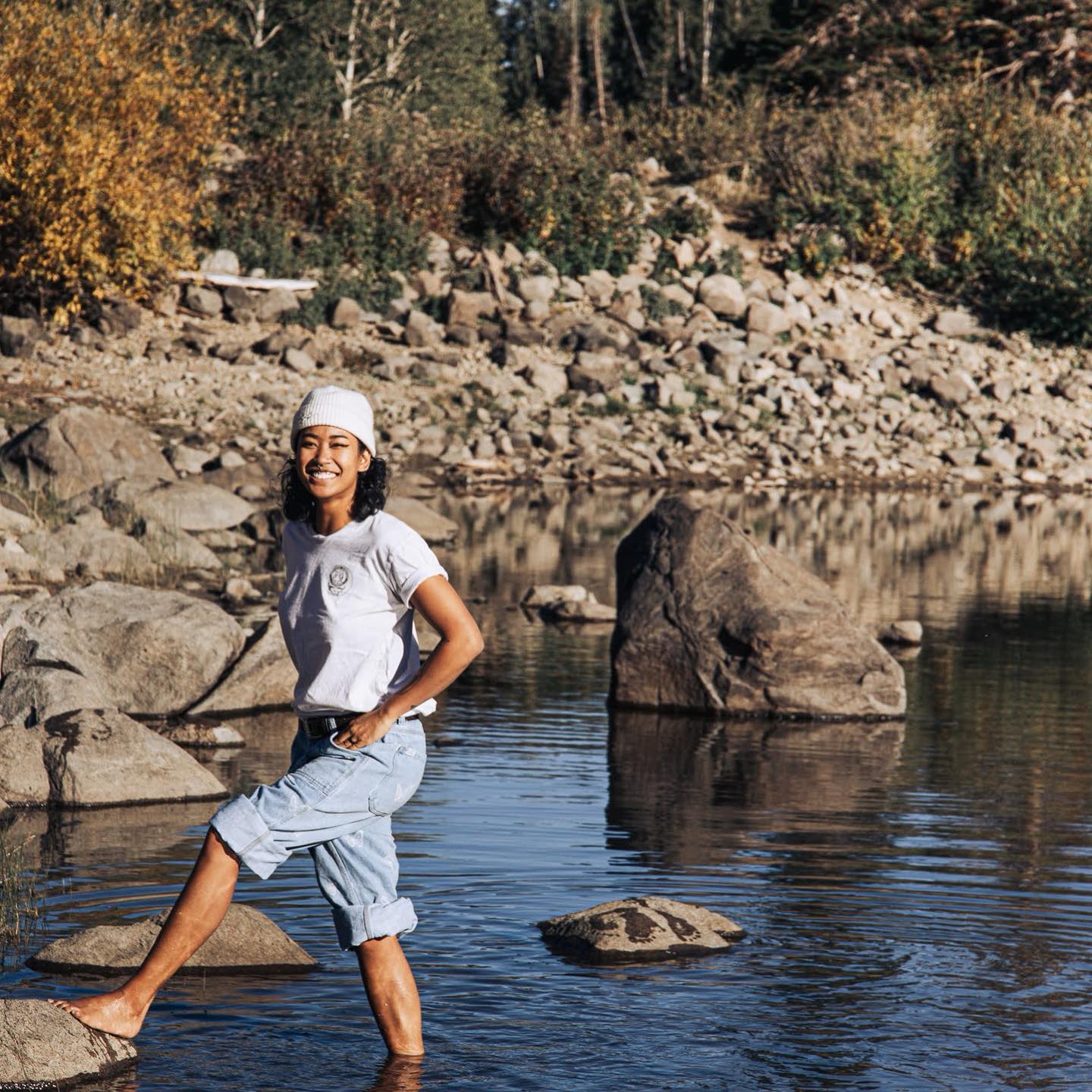
This season, Picarazzi happily balances her brand work with coaching at Woodward, making sure in all the chaos of life to always keep skiing for her own happiness. “I had all those big aspirations a couple of years ago and they all happened in the last year,” laughed Picarazzi. “Now I’m just living each day one by one. My goals are to make sure I’m skiing sustainably, be helpful to other people who want to learn or who are already in the industry, and to make sure we have snow to ski on. I really don’t have any long, long term aspirations other than finding a great house in Montana and having kids.”
She continued, “I’m not in a rush and I am trying not to live my life like I’m in a rush, which has kept me mentally stable. It’s a nice feeling to have. I would like to continue on the path that I’m on. I don’t have anything planned, but I also don’t want to veer off of where I’m going. I just want to keep going up.”
Over the past few years navigating the ups and downs of life, Picarazzi has taken away one key lesson. The importance of a good support system. “I feel like a lot of people try to go after [a pro ski career] with a ‘me only’ mentality, which is something I had to push through,” she explained. “I had to open myself up to helpful and constructive criticism. Obviously I ski and travel so much [that there has to be] a lot of communication and a lot of just, making sure everyone’s at where they need to be mentally. I feel like that’s way too overlooked in the ski community, having that good support system. Not just a support system that’s going to tell you to go ski if you’re sad. You want an actual support system. That’s definitely what I’ve been grateful for since I started my progression in becoming a professional skier.”
